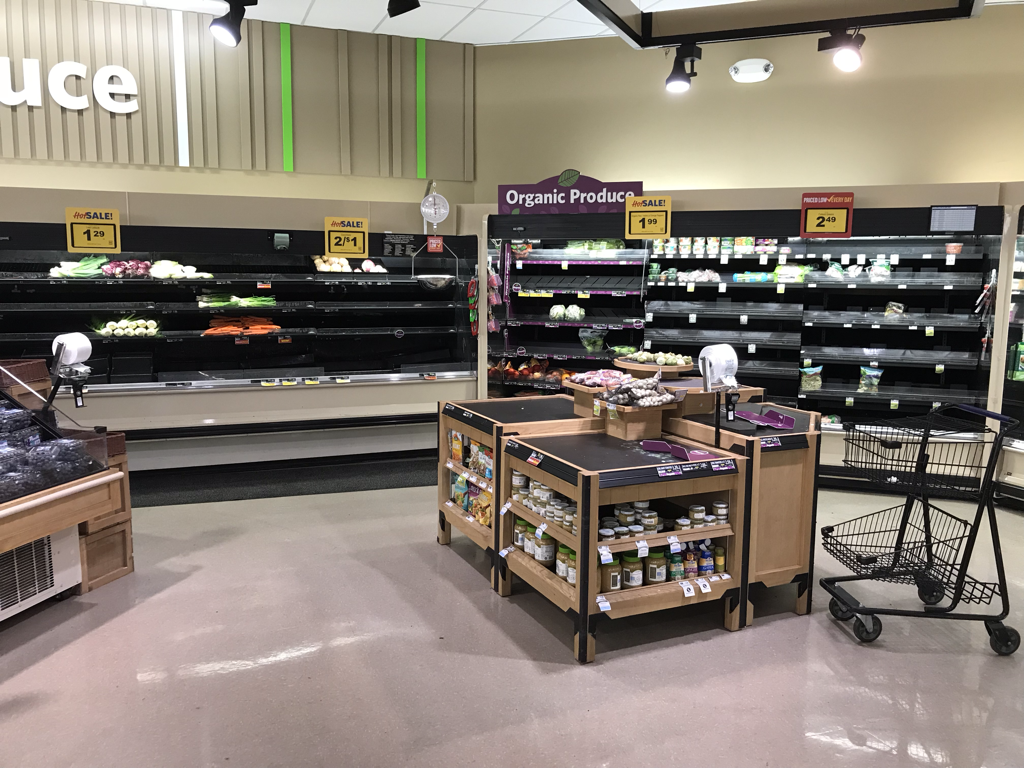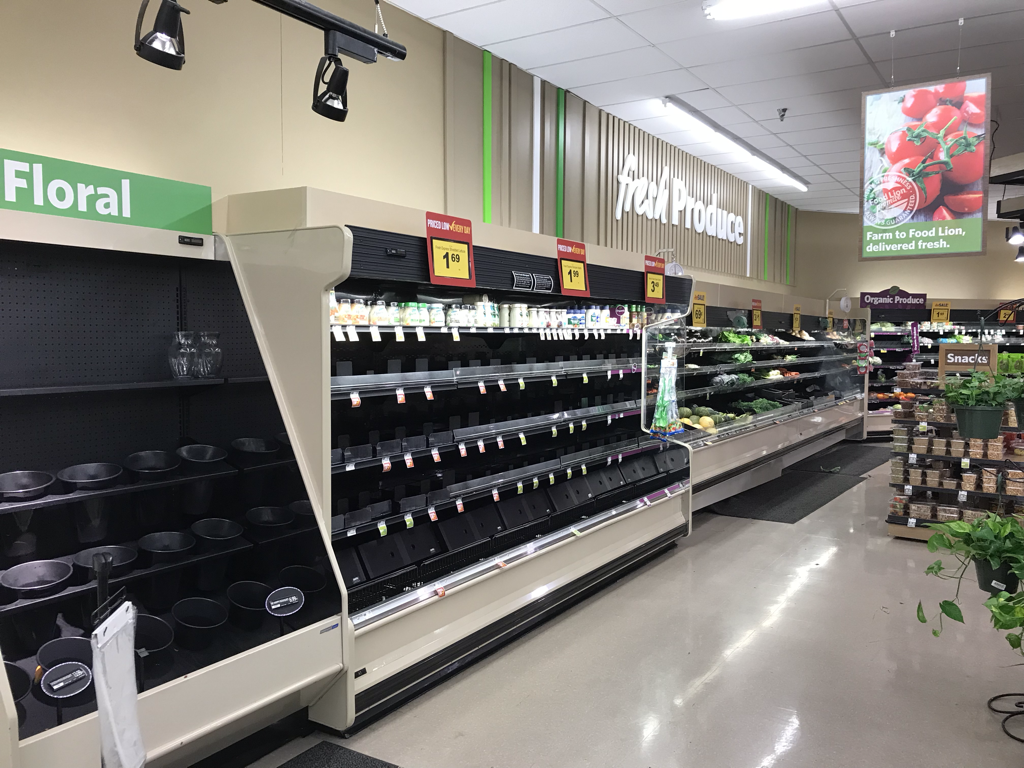|
The Wednesday after Hurricane Florence I visited my local farmers market, where I found the usual array of wonderful, fresh vegetables. Nothing seemed out of whack at this midweek market. The farmers complained about too much rain and humidity, but nonetheless there was plenty of product. I stocked up on eggplant, peppers and greens, marveling at the robustness of our local food system, even during hurricane season.
Later that day, I visited three supermarkets, all within a few miles of our house. I won't name names, but what I found was surprising. One of the chains had virtually no produce at all -- the produce manager was busily arranging lemons, limes and bananas. The entire veggie section was empty. At another store I found plenty of produce, except that the entire organic section was empty. At the third store, things were business as usual. This produce section showed no signs of disruption at all. At all of these stores, the rest of the supermarket seemed well-stocked. So, what are we to make of this state of affairs? Does the aftermath of Florence prove that decentralized, local food systems are better or more resilient than centralized ones? Why I might like to say that, I'm not sure. Extreme weather events can harm our small local farms, either by damaging their crops and/or disrupting their routes to market. If that did happen, the farmers market would look like the empty supermarket. And, if that did happen, our region would be happy and fortunate to import food from a neighboring region or even further away. With Florence, our local farms fared well and that was good news for them and for farmers market shoppers. What happened to the supermarkets was due to disruptions to warehouses and distribution. With both I-95 and I-40 shut down in places, one can imagine that trucks couldn't get through or got stranded in the wrong place. (I reached out to grocery officials to hear from them, but did not get a response -- maybe too busy with crisis management.) In the end, the local food system we envision needs centralized distribution just as much as a nationalized system, but with fewer food miles, of course. To feed ten million North Carolinians, large centralized systems will be essential. And those systems will be vulnerable to hurricanes. So, rather than criticize supermarkets for a short term disruption, I am amazed that they had as little trouble as they did. Thanks go out to all those who bring us our food everyday. And, hopefully, some day these logistical magicians can use their talents to help to orchestrate a better system -- a robust local-regional food distribution system that offers local, organic, and tasty products to the average family -- in supermarkets. |
Archives
June 2021
Categories |


 RSS Feed
RSS Feed